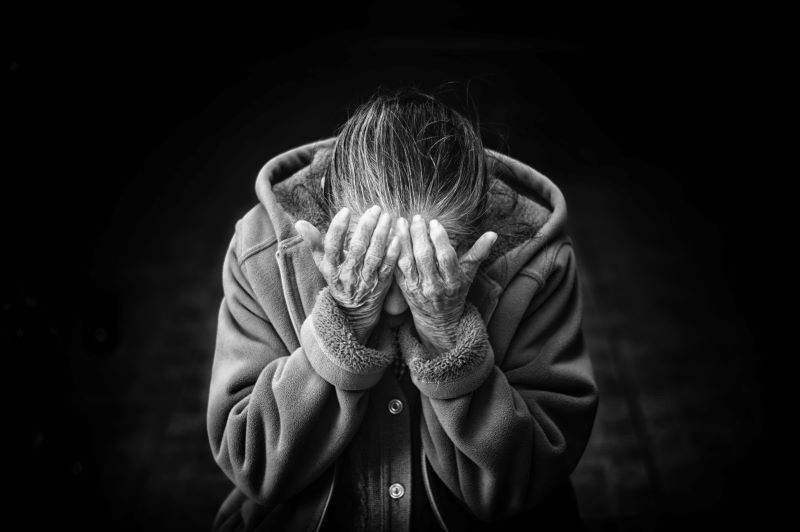How to Recognize and Report Elder Abuse and Neglect
Learn how to recognize signs of elder abuse and neglect with tips from Seniorly. Know the signs and how to report suspected elder abuse to the right authorities.

Seniors are vulnerable when it comes to abuse. Whether they live alone, have care at home or are in an assisted living community, abuse can happen anywhere. And it can range from emotional and financial to physical.
It’s important to learn about the early signs, the risk factors, and how you can be the best advocate for a loved one and prevent elder abuse.
What is elder abuse?
As seniors age, they become more frail and less able to defend themselves. They may experience hearing loss, memory loss, or not think as clearly as they once did. This can leave the door open for people to take advantage of them.
It can be a caregiver, a companion, or even a family member, who may be under a lot of stress just trying to handle the responsibilities of caring for an elderly person. In fact, ninety percent of all reported cases of elder abuse involved a family member.
According to Helpguide.org, a non-profit organization for the elderly, “In the U.S. alone, more than half a million reports of abuse against elderly Americans reach authorities every year, and millions more cases go unreported.”
Types of elder abuse
There are different types of abuse. Here are the most common ones to look for:
Physical Abuse
Any use of force against the elderly that involves pain, including hitting and shoving but also any misuse of drugs, restraints or confinement.
Signs to look for:
- Unexplained injuries such as bruises, welts or scars, broken bones, sprains or dislocations.
- Reports of drug overdose or failure to take medication regularly (a prescription has more remaining than it should)
- Broken eyeglasses or frames
- Restraint marks on wrists
- Caregiver’s refusal to allow you to see the elder alone.
Emotional Abuse
There are many kinds of emotional abuse but overall, it involves treating the elderly in ways that cause emotional pain or stress.
Signs to look for:
- Yelling and ridicule
- Threats
- Habitual blaming and scapegoating
- Terrorizing the elder
- Ignoring the elder
- Isolation
- Behavior from the elder that mimics dementia, such as rocking, sucking, or mumbling to oneself
Sexual Abuse
Any sexual contact with an elderly person without their consent. (Or if they are unable to give consent.)
Signs to look for:
- Bruises around breasts or genitals
- Unexplained venereal disease or genital infections
- Vaginal or anal bleeding
- Torn clothing or undergarments
Financial Exploitation
Gaining unauthorized use of an elderly person’s funds or property. This can happen from a caregiver, an outside scam artist, or even a family member.
Signs to look for:
- Significant withdrawals from accounts
- Changes in a loved one’s financial situation
- Items or cash missing from household
- Suspicious changes in wills, power of attorney, titles and policies
- Unpaid bills, lack of medical care
- Financial activity the senior couldn’t have done such as ATM withdrawals
- Unnecessary goods or subscriptions
Neglect or Abandonment by Caregiver
Elder neglect constitutes about half of all the reported cases of elder abuse. It can be intentional or unintentional.
Much of it is based on ignorance or self-denial that an elderly person needs as much care as he or she does. And if the caregiver is a family member, they may feel overwhelmed, stressed and unable to manage on their own.
Who’s most at risk?
Elders who are at higher risk for abuse tend to be those with the highest medical needs, more socially isolated (for example, the elder and caregiver are alone most of the time), were once an abusive parent or spouse, or have a history of domestic violence in the home.
What you can do to help protect your loved one
If you are a caregiver and are feeling overwhelmed and stressed, here are some steps you can take to get some relief and help:
- Ask for help from friends, family or local agencies so you can get some regular breaks
- Find an adult day care program (Visiting Angels is one such national program)
- Stay healthy and get regular doctor care when necessary
- Adopt stress reduction practices like yoga and mindfulness
- Seek counseling for depression
- Find a support group for caregivers for the elderly
If you are a friend or concerned family member and suspect elder abuse:
- Report it immediately (local Adult Protective Services would be the agency to contact)
- Look carefully at medications. Does the amount in the bottle coincide with the date of the prescription?
- Watch for possible financial abuse. Ask the elder if you can scan bank and credit card statements or check for unauthorized withdrawals or transactions
- Call and visit as often as possible. Help the elder consider you a confidant
- Offer to give a regular caregiver a break on an ongoing basis if possible
Advocating for a loved one in senior housing or an assisted living community
One way to make sure you’re choosing a good, well qualified assisted living or skilled nursing community for a loved one is to ask a variety of questions, such as:
- What's the ratio of staff to residents?
- What's the staff turnover rate?
- Are background checks performed before hiring staff? If so, when and how?
- How much training do staff members receive?
- What does the facility do to avoid staff burnout and/or retain great staff members?
- Is there an RN, LVN, or CNA on staff?
These questions will help you gain some insight into the facility and could raise red flags if there are any. It is also suggested that you visit your loved one “after hours” occasionally to make sure everything looks as good in the evening as it does during the day.
Of course, if you do suspect abuse, immediately call 911 or the Adult Protective Services agency in your state.
Sources consulted:
http://www.helpguide.org/articles/abuse/elder-abuse-and-neglect.htm
http://www.healthinaging.org/resources/resource:preventing-elder-abuse-and-neglect-in-older-adults/
Content Contributor at Seniorly
To learn more about Seniorly's editorial guidelines, click here.
Sign up for our Healthy Aging Handbook
Seniorly’s Senior Living advisors created a comprehensive handbook to help people age happily while ensuring they love where they live. Enter your email address below to receive your copy and learn more about Healthy Aging and Senior Living.*
*By submitting your email address above, you consent to receive occasional email communications from Seniorly, including educational content and tips, newsletters, and other relevant updates and offerings. You can unsubscribe at any time and we will never sell or distribute your email address to a third party. You can view our Privacy Policy here.
